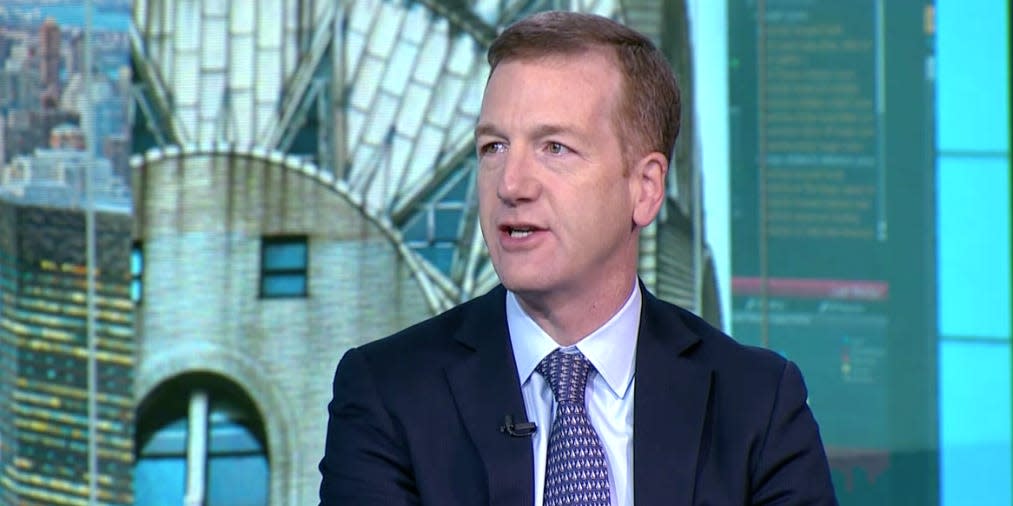The bear market for stocks is almost over but the last phase may be 'vicious,' Morgan Stanley CIO says

The Fed's rush to provide liquidity does not equate to quantitative easing, Mike Wilson wrote.
"The bottom line is that we think this is exactly how bear markets end," Morgan Stanley's CIO said.
But the last phase of a bear market can be "vicious," Wilson added in a note.
The Federal Reserve's rush to provide banks with liquidity amid a contagion crisis should not be a green light for investors to take risky bets, Morgan Stanley chief investment officer Mike Wilson said in a Monday note.
Instead — combined with a growing credit crunch and earning estimates that remain overly optimistic — markets may be in for a dramatic decline.
"The bottom line is that we think this is exactly how bear markets end," the reputed bearish analyst wrote. "In this case, it's the fact that earnings growth expectations are much too high given the headwinds companies are facing, and the fact that the Fed is hiking rates during a period of contracting earnings."
In recent weeks, some investors have grown convinced that the Federal Reserve's help in backstopping the deposits of lenders and the addition of liquidity to stabilize other banks is a return to quantitative easing, fueling gains in the stock market.
But Wilson said that this liquidity will only have short-lived benefits, and won't alleviate tight lending conditions that are adding to a credit crunch.
Of the $308 billion the Fed loaned to banks during the crisis that started with the failure of Silicon Valley Bank, most of it is unlikely to lead to the creation of new credit for their customers, he wrote.
"None of these reserves will likely transmit to the economy as bank deposits normally do," he said. "Instead, we believe the overall velocity of money in the banking system is likely to fall sharply and more than offset any increase in reserves, especially given the temporary/emergency nature of these funds."
He also noted that the bond yield curve has steepened by 60 basis points within days, historically forecasting a coming recession.
Despite this, earnings predictions have remained high, Wilson added, but they will see a downward correction as the next quarterly reporting season approaches.
"This is how it always plays out in our experience and why the last part of the bear can be vicious and highly correlated — i.e., prices fall sharply via an equity risk premium spike that is very hard to prevent or defend in one's portfolio," he wrote.
Read the original article on Business Insider


